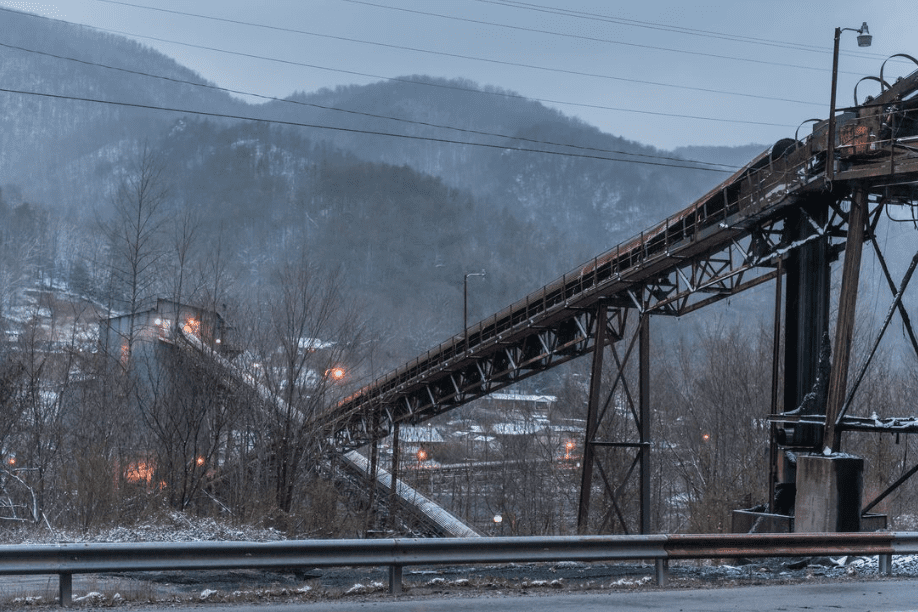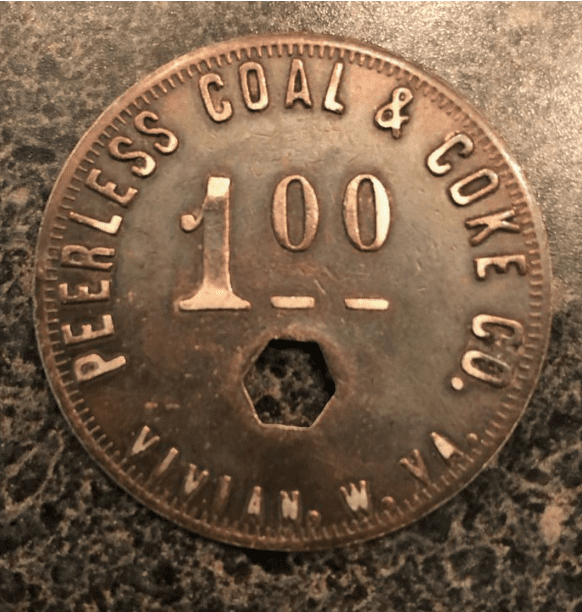Calvin Kunin
Columbus, Ohio, United States

This is a brief account of my experience as a physician at a coal mining camp in rural West Virginia. It is based on my memory of events that took place almost seventy years ago but remain vivid in my mind. The adventure began the day I graduated from medical college in late May 1953. I was twenty-four years old. Following the ceremony, the dean of students asked me to meet him at his office the next day. He told me about a problem troubling a former graduate. The man had contracted with the union of a small coal mine to serve one year as the camp doctor. Eleven months had passed, but he urgently needed to leave to retain his sanity. He had contacted the dean in desperation to find someone to serve as locum tenens to complete his last month to fulfill his contract. The dean urged me to consider being his replacement.
I told the dean I was not qualified to take over a medical practice. I had just graduated from medical school, was to begin my internship in July, and did not have a license to practice medicine. My clinical experience was limited to a six-week elective at the Navajo Indian reservation. He countered that West Virginia did not require an internship for a license to practice medicine. I could easily obtain one at the courthouse in Charleston on my way to the coal camp. All that was required was my diploma and driver’s license.
I needed the money. I was excited by the opportunity to see a unique region of the country, learn about the coal miners, and escape the grind of academic medicine. The dean provided me with a map to guide my drive to Charleston and on to the coal camp near Beckley, West Virginia.

The Coal Camp
The town consisted of a company store with rows of unpainted, poorly built, closely spaced houses on both sides of a gravel road. There were no sidewalks or front yard gardens. The only remarkable feature was the presence of television antennas on many of the houses. Two wooden buildings were located across from the store. One was the boarding house, where I was to stay, and a small building that turned out to be the clinic.
The physician I was about to replace was a handsome young man who was pleased to see me. He told me I was to work alone and would be responsible for cleaning and the medical laundry. I was to provide drugs from a supply in the back room. If I needed to look up something in a book, I should excuse myself and go there.
The shelves held some dusty bottles of mostly unrecognizable drugs and a bottle of chloroform. There were several preloaded syringes containing a combination of penicillin and streptomycin, several with morphine, procaine, Pitocin, and a few worn medical books. I could not find epinephrine, insulin, or vaccines. I had no laboratory or x-ray facilities. Not even a microscope.
I was to charge two dollars for an injection and thirty dollars for delivering a baby. I could garnish the salary of the miners if they would not pay. Chloroform was to be administered by mask during deliveries since ether might explode when exposed to fire from the woodburning stoves. I was not responsible for seriously ill patients. The families could take them to the hospital in Beckley.
I was too stunned to ask questions. He paid me and drove off in his convertible. He had neglected to inform me about the people and the medical problems I might encounter or how to seek help. He left no patient records or notes. I was embarrassed but was now responsible for the remainder of the month. I never saw him again.
Patient Encounters
It was not a busy practice. Most of the visits were by women and children. Fortunately, most were for minor medical problems. One situation briefly tested my medical ethics. A mother brought her young son to see me. She told me that her son was troubled by recurrent episodes of poison ivy. She asked whether I could provide a vaccine that would prevent future attacks. The boy was well and had no rash at the time. I retreated to the back room and found a bottle labeled “anti-poison ivy serum” to be given by injection. I suspected that the “serum” was ineffective and possibly dangerous. I had to balance between satisfying the mother and the danger of administrating an ineffective drug. I decided that it would be a great mistake to start my medical career by placing patient satisfaction and personal gain above medical ethics. I told the mother that the serum was ineffective and would not provide it.
The few men that came to the clinic tended to be lean and shy with stringy muscles. Most were former miners and heavy smokers. The most frequent complaint was cough and shortness of breath. I had no access to a chest x-ray to rule out tuberculosis or lung cancer. My predecessor had not given me a number to call for referral. I gave them a supply of bronchodilator drugs and rarely saw them again.
Home Delivery
I participated in a home delivery of a baby aided by several mature women. They may have been family or friends. It was an easy delivery of her third or fourth child. There was no need for chloroform. I had given her an injection of Pitocin after the child was born, but the placenta was not expelled. I feared that it was trapped by the contracted uterus and extracted it manually. The family and friends were very kind to me during the event. They taught me a lot. I did not charge for my minimal service.
A Remarkable Success
I received an emergency call one afternoon that the local sheriff had suddenly developed severe back pain after lifting a heavy object. He was lying on the ground and could not get up. He was a huge man with a fearful expression on his face from pain and agony. I had brought a vial of procaine and a syringe. I palpated his back to find a trigger point as taught by Dr. Janet Travell. I injected the procaine at the point of maximum tenderness in the spastic muscle. He soon developed considerable relief from the pain, got up, grunted, and walked off.
Lonely Elderly Women
Some of my most loyal patients were elderly women who just wanted someone to talk to. I have had similar experiences over the years. They usually had multiple somatic complaints of head, back, and stomach, or just hurt all over. They were reluctant to talk about what was troubling them the most—loneliness. I was reluctant to pry into their lives, just chatted until they appeared to be satisfied. I avoided giving them medications, not even placebos. They needed socialization that I could not provide.
Accident at the Mine
I received a call on a dark and stormy night that there was an accident at the mine and to come immediately. All I had were several syringes of morphine, some bandages, and antibiotics. I had no experience in trauma care and feared I would reveal my incompetence. I drove to the site and joined a large crowd standing in the rain. Floodlights illuminated the entrance to the mine. I could not get through the crowd and just peered between them. They suddenly began to cheer. A group of miners carried the injured man on a stretcher. He was lifted to the back of a waiting ambulance and driven off. It was apparent that the miners were intelligent, well organized, cared for their comrades, and did not need my help.
The Big House
About a week before I was to leave the mining camp, I received a note from the manager inviting me for lunch at his home. The house was set on a small hill surrounded by several acres of grassland and white wooden fences. It was a large, redbrick, Georgian-style building with white columns and friezes. It was like the elegant mansions and horse farms on hills dotting the countryside surrounding Charlottesville, Virginia where I lived many years later. The manager and his wife greeted me warmly at the entrance and offered me a glass of bourbon and branch water or a mint julep. I forget which. The couple was dressed in expensive but comfortable clothes. They were charming. They made me feel as though I belonged to their class. This felt so good that I did not reveal my background. The manager told me that the camp was owned by The New River Company, based in New York City. He did not inquire about my experiences at the mine. Their daughter and son joined us for lunch. The daughter was about seventeen or eighteen and had just finished riding her horse. The son was home from college and had just completed a round of golf. Neither were curious about the mine. Their home was only about thirty miles from the camp, but the family behaved as though it did not exist.
Back in New York City
I returned just a few days before I was to start my internship. I was focused on my duties and did not report my experience to the dean, nor did he contact me. It was time to move on.
CALVIN M. KUNIN, MD, MACP, is a graduate of Columbia College and Cornell Medical School. His fields of interest are infectious diseases, antimicrobial therapy, pharmacokinetics, urinary tract infections, and hospital infection control. He is a past-president of the Infectious Diseases Society of America and recipient of the Hamao Umezawa Memorial Award of the International Congress of Chemotherapy. He served as an Epidemic Intelligence Officer at the CDC followed by a residency at the Peter Bent Brigham Hospital and fellowship in infectious diseases with Dr. Maxwell Finland at the Boston City Hospital. He is Honorary Consultant to the National Health Research Institutes of Taiwan.
Highlighted in Frontispiece Volume 14, Issue 1 – Winter 2022 and Volume 14, Issue 3 – Summer 2022

Leave a Reply